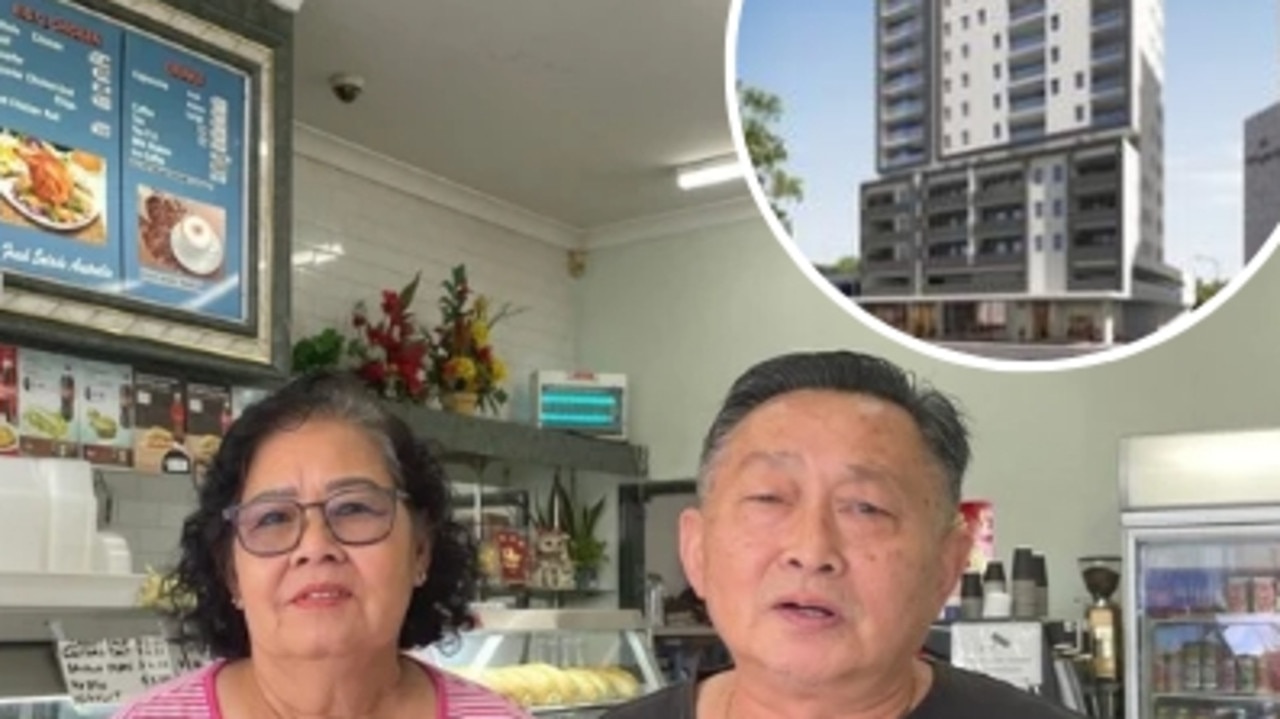Sydney Train delays: New data reveals which lines have the worst delays
One in every seven train services across the Sydney Trains network is either delayed or cancelled, according to new data. See how your service stacks up.
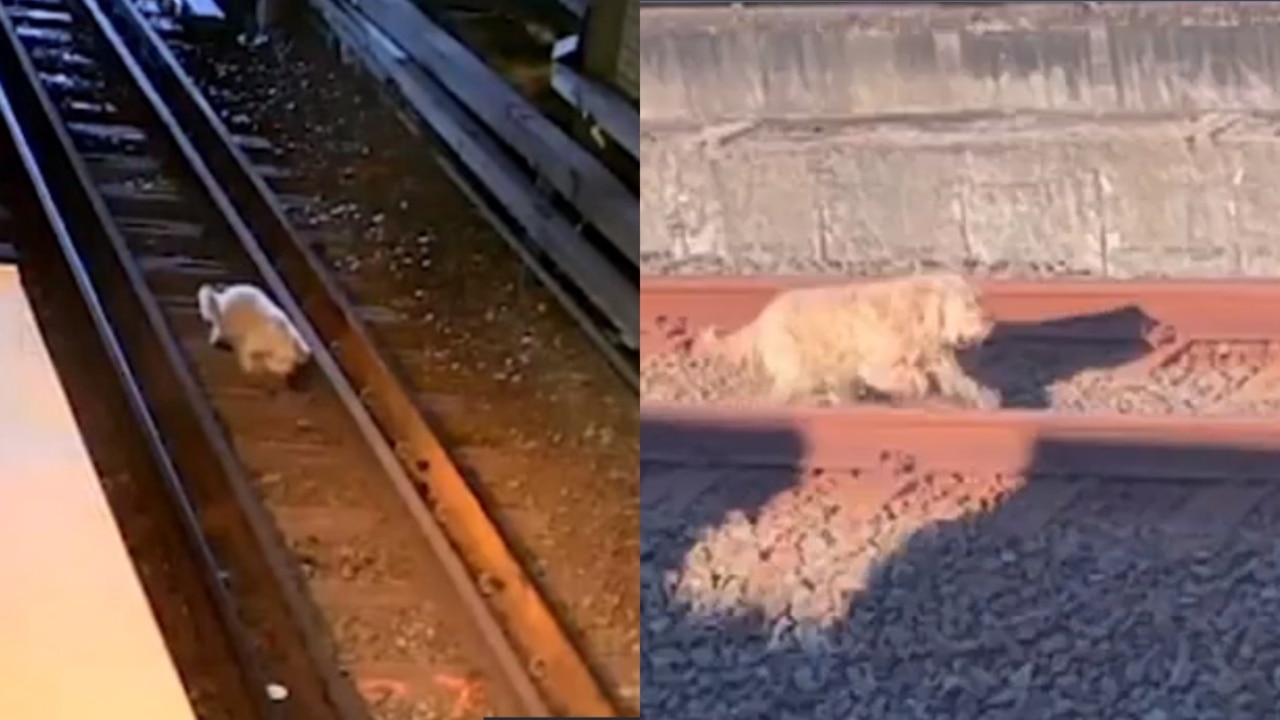
Local
Don't miss out on the headlines from Local. Followed categories will be added to My News.
Commuters are experiencing the worst delays and cancellations on the Sydney rail network in recent history – with as many as one in every seven services impacted across the network.
New Transport for NSW data has revealed combined services across the state’s public transport network have failed to meet their own month-by-month punctuality performance targets since May last year.
In the 2023 financial year, 15.6 per cent of all services across the rail network were delayed or cancelled in a five-year high for Transport for NSW.
The Sydney Trains and NSW TrainLink performance reports reveal the Intercity and Western and Northern Lines have some of the worst track records for on-time services.
In March, performance rating plummeted to a year-long low with 22.7 per cent of all services delayed or cancelled.
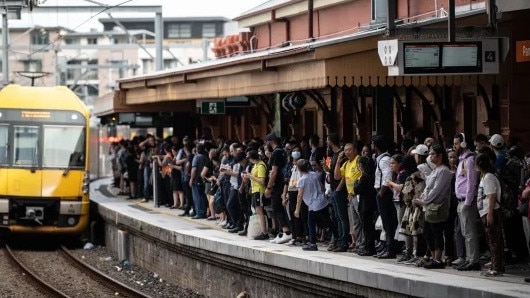
The Inner West and Leppington line saw 18.6 per cent of all services delayed in the 2022-23 financial year, while 15 per cent of all services were either delayed or cancelled on the Bankstown line.
The airport and south line saw 14.1 per cent of services run late or cancelled, while the northern line has a 14.9 per cent rate of reported delays across the last financial year. The Eastern Suburbs and Illawarra line saw the least number of delayed services with 11.5 per cent across the same period.
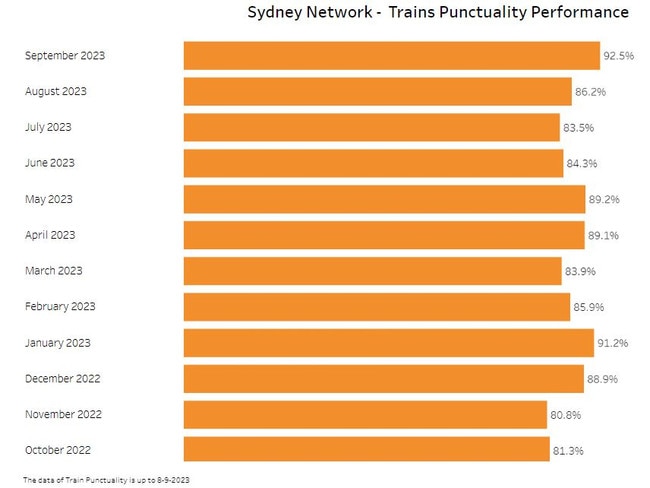
Transport Advocacy Network spokesman Paul Nolan said the government has “cut to the bone” when it comes to surplus drivers – which were once used to plug delays and cancellations across the network.
“Sydney Trains has stripped the network of available drivers waiting for something to go wrong,” Mr Nolan told The Daily Telegraph. “It is no surprise that one in every five trains are impacted.
“A single 10-minute delay at a station in the morning can compound the number of impacted services tenfold, as there are not surplus drivers to address any kind of issue across the network.”
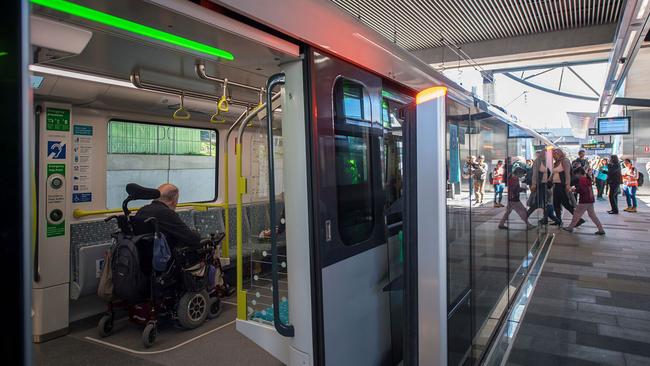
Mr Nolan said Sydney and Intercity services could “replicate the success” of high performance results on the Sydney Metro – where services regularly run at 98 to 99 per cent on-time rates – if surplus drivers were installed at major stations.
Immigration lawyer Zara Ghaddar said the Cronulla line is delayed “a couple of times
a week”, while Carlton resident Moulins Roy said he experiences “lengthy delays, track work and cancelled trains regularly”.

“Trains from Lakemba have long delays, 15 minutes or more, and they don’t tell you what it’s for they just announced over the intercom with no information – you just have to accept it,” he said.
Hornsby student Ashton Maya said his train to Central Station is delayed “at least a couple of times a week”.
“It is not really a surprise anymore,” the 23-year-old student said. “It’s annoying, when you are copping multiple delays a week it all starts to add up and for sure you get frustrated with it.”
Optometrist, Iran Bookbinder, said delays at Parramatta were “very bad, long and leaves the platforms and trains very busy”.
Transport Minister Jo Haylen said 48 per cent of major defects have been fixed since June 4, “but there is still a long way to go”.
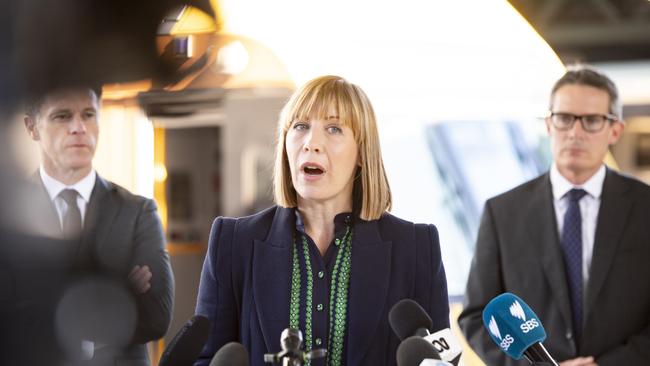
“We are still seeing too many instances of issues that should be confined to one part of the network affecting the rest of the network,” she said. ”We need to be better at dealing with the increase in human related incidents which an increase in patronage brings.”
A Transport for NSW spokeswoman said more than 500km of rail has ben repaired in the past four months.
The spokeswoman confirmed intercity lines saw less than a one per cent rate of cancellations from January to July this year.
The T1, T2 and T3 saw a one per cent rate of cancellations in the first 7 months of this year, meanwhile the T4, T5 and T7 saw a two per cent rate of cancellations.
"Driver sickness and absences are not an issue,” she said. “Sydney Trains has a detailed workforce plan with more than five years of data – and our current absences are running in line with sick leave forecast estimates.
“We also have contingencies in place, including standby crew on roster.”
.



